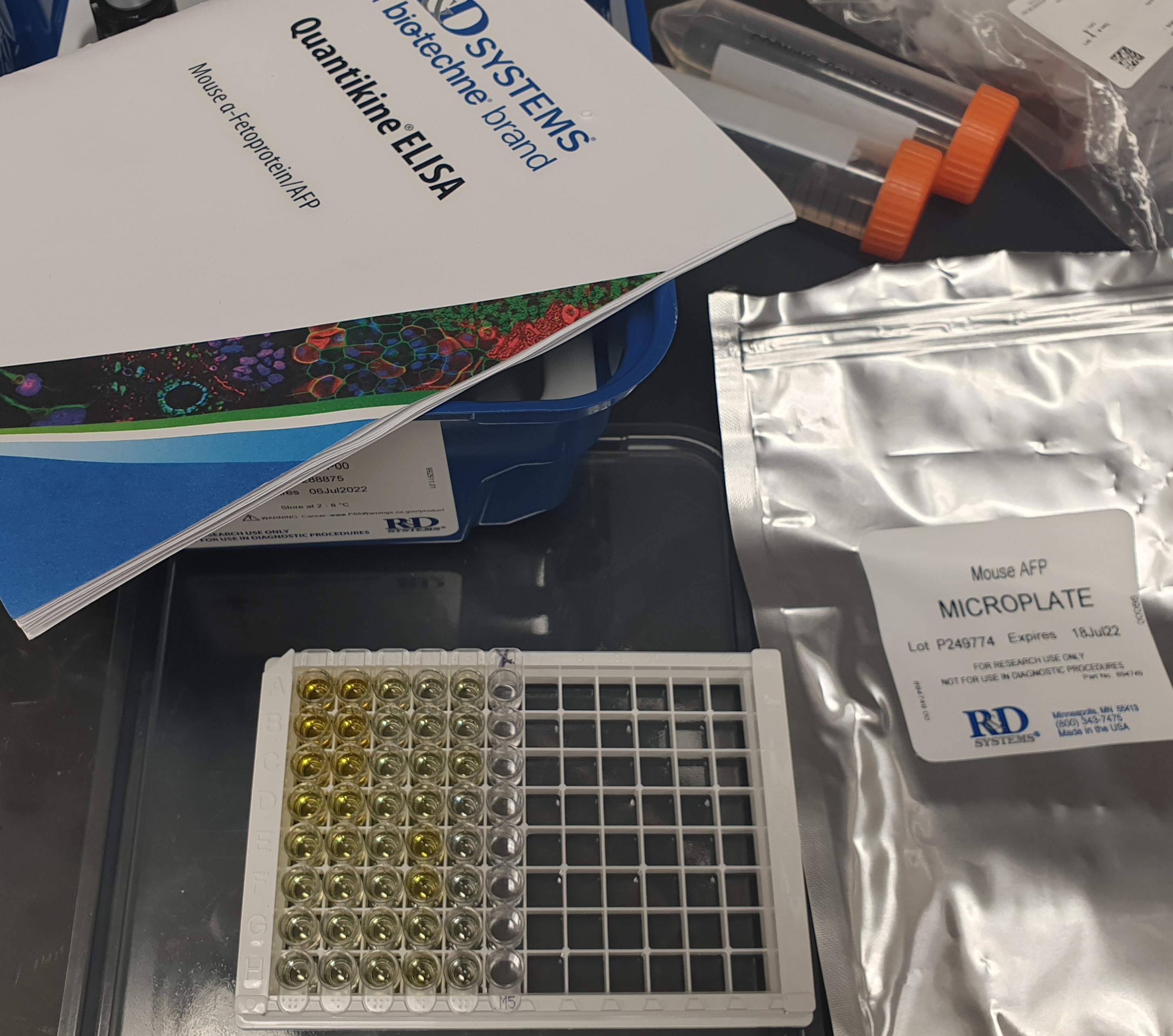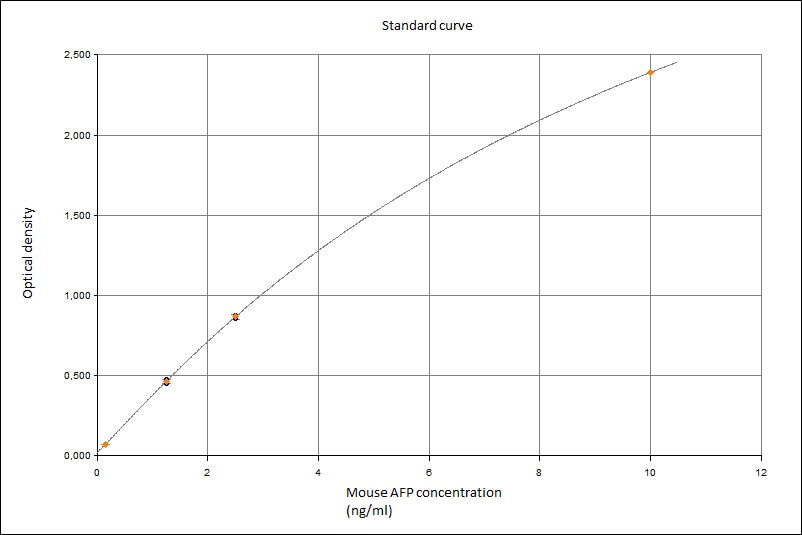Mouse alpha-Fetoprotein/AFP Quantikine ELISA Kit Summary
Product Summary
Precision
Cell Culture Supernates, Serum, EDTA Plasma, Heparin Plasma
| Intra-Assay Precision | Inter-Assay Precision | |||||
|---|---|---|---|---|---|---|
| Sample | 1 | 2 | 3 | 1 | 2 | 3 |
| n | 20 | 20 | 20 | 20 | 20 | 20 |
| Mean (ng/mL) | 0.404 | 1.12 | 3.3 | 0.457 | 1.2 | 3.38 |
| Standard Deviation | 0.013 | 0.026 | 0.091 | 0.031 | 0.066 | 0.158 |
| CV% | 3.2 | 2.3 | 2.8 | 6.8 | 5.5 | 4.7 |
Recovery
The recovery of mouse AFP spiked to levels throughout the range of the assay was evaluated.
| Sample Type | Average % Recovery | Range % |
|---|---|---|
| Cell Culture Media (n=4) | 98 | 93-105 |
Linearity
Scientific Data
Product Datasheets
Preparation and Storage
Background: alpha-Fetoprotein/AFP
alpha-Fetoprotein (AFP), is albuminoid superfamily protein that is synthesized in the fetus primarily by the liver, yolk sac, and tissues of gastrointestinal origin. It is one of the earliest markers of the hepatocyte lineage. AFP acts as a carrier protein for steroids, bilirubin, fatty acids, retinoids, and flavonoids. In addition, it can exert immunosuppressive activity, regulate cell proliferation and apoptosis, initiate intracellular signaling, and contribute to cell invasion. Altered levels of both fetal and maternal AFP have been associated with hypothyroidism, autoimmune disorders, and heart defects. Low maternal serum AFP levels are associated with a higher incidence of Down syndrome, whereas higher levels are associated with spina bifida and anencephaly. Elevated AFP levels are also coincident with liver, stomach, and germ cell cancers.
Assay Procedure
Refer to the product- Prepare all reagents, standard dilutions, and samples as directed in the product insert.
- Remove excess microplate strips from the plate frame, return them to the foil pouch containing the desiccant pack, and reseal.
- Add 50 µL of Assay Diluent to each well.
- Add 50 µL of Standard, control, or sample to each well. Cover with a plate sealer, and incubate at room temperature for 2 hours on a horizontal orbital microplate shaker.
- Aspirate each well and wash, repeating the process 3 times for a total of 4 washes.
- Add 100 µL of Conjugate to each well. Cover with a new plate sealer, and incubate at room temperature for 2 hours on the shaker.
- Aspirate and wash 4 times.
- Add 100 µL Substrate Solution to each well. Incubate at room temperature for 30 minutes on the benchtop. PROTECT FROM LIGHT.
- Add 100 µL of Stop Solution to each well. Read at 450 nm within 30 minutes. Set wavelength correction to 540 nm or 570 nm.
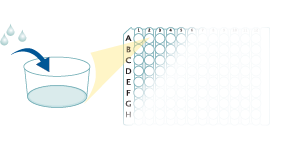


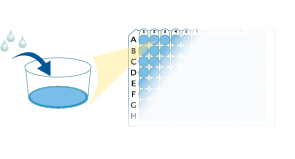
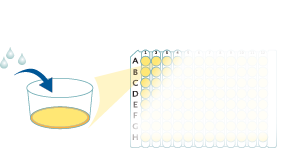
Citations for Mouse alpha-Fetoprotein/AFP Quantikine ELISA Kit
R&D Systems personnel manually curate a database that contains references using R&D Systems products. The data collected includes not only links to publications in PubMed, but also provides information about sample types, species, and experimental conditions.
17
Citations: Showing 1 - 10
Filter your results:
Filter by:
-
AMPK activation prevents hepatocellular carcinoma development through inhibition of HNF4? activity
Authors: Sun, Z;Linares, B;Urdiales, C;Al-Sarmi, F;Putluri, N;Van Nostrand, JL;
bioRxiv : the preprint server for biology
Species: Mouse
Sample Types: Serum
-
Glypican-3 deficiency in liver cancer upregulates MAPK/ERK pathway but decreases cell proliferation
Authors: Chung, JY;Lee, W;Lee, OW;Ylaya, K;Nambiar, D;Sheehan-Klenk, J;Fayn, S;Hewitt, SM;Choyke, PL;Escorcia, FE;
American journal of cancer research
Species: Mouse
Sample Types: Serum
-
Tumour-specific activation of a tumour-blood transport improves the diagnostic accuracy of blood tumour markers in mice
Authors: Schmithals, C;Kakoschky, B;Denk, D;von Harten, M;Klug, JH;Hintermann, E;Dropmann, A;Hamza, E;Jacomin, AC;Marquardt, JU;Zeuzem, S;Schirmacher, P;Herrmann, E;Christen, U;Vogl, TJ;Waidmann, O;Dooley, S;Finkelmeier, F;Piiper, A;
EBioMedicine
Species: Mouse
Sample Types: Serum
-
Hyperpolarization-activated cyclic nucleotide-gated cation channel 3 promotes HCC development in a female-biased manner
Authors: Zhang, Y;Liu, X;Sun, K;Luo, Y;Yang, J;Li, A;Kiupel, M;Fenske, S;Biel, M;Mi, QS;Wang, H;Xiao, H;
Cell reports
Species: Mouse
Sample Types: Serum
-
METTL3 drives NAFLD-related hepatocellular carcinoma and is a therapeutic target for boosting immunotherapy
Authors: Yasi Pan, Huarong Chen, Xiang Zhang, Weixin Liu, Yanqiang Ding, Dan Huang et al.
Cell Reports Medicine
Species: Mouse
Sample Types: Serum
-
Deletion of Cd44 Inhibits Metastasis Formation of Liver Cancer in Nf2-Mutant Mice
Authors: Gerardo-Ram�rez, M;Giam, V;Becker, D;Groth, M;Hartmann, N;Morrison, H;May-Simera, HL;Radsak, MP;Marquardt, JU;Galle, PR;Herrlich, P;Straub, BK;Hartmann, M;
Cells
Species: Mouse
Sample Types: Serum
-
Saroglitazar suppresses the hepatocellular carcinoma induced by intraperitoneal injection of diethylnitrosamine in C57BL/6 mice fed on choline deficient, l-amino acid- defined, high-fat diet
Authors: SR Giri, B Bhoi, C Trivedi, A Rath, R Rathod, A Sharma, R Ranvir, S Kadam, K Ingale, H Patel, A Nyska, MR Jain
BMC Cancer, 2023-01-17;23(1):59.
Species: Mouse
Sample Types: Serum
-
AKT-AMPKalpha-mTOR-dependent HIF-1alpha Activation is a New Therapeutic Target for Cancer Treatment: A Novel Approach to Repositioning the Antidiabetic Drug Sitagliptin for the Management of Hepatocellular Carcinoma
Authors: EE Abd El-Fat, S Saber, ME Youssef, H Eissa, E El-Ahwany, NA Amin, M Alqarni, GE Batiha, AJ Obaidullah, MMY Kaddah, AG Ahmed Gaaf, AAE Mourad, G Mostafa-He, AM Abdelhamid
Frontiers in Pharmacology, 2022-01-12;12(0):720173.
Species: Mouse
Sample Types: Tissue Homogenates
-
Macrophage autophagy protects against hepatocellular carcinogenesis in mice
Authors: A Deust, MN Chobert, V Demontant, G Gricourt, T Denaës, A Thiolat, I Ruiz, C Rodriguez, JM Pawlotsky, F Teixeira-C
Scientific Reports, 2021-09-22;11(1):18809.
Species: Mouse
Sample Types: Serum
-
Mef2d sustains activation of effector Foxp3+ Tregs during transplant survival and anticancer immunity
Authors: E Di Giorgio, L Wang, Y Xiong, T Akimova, LM Christense, R Han, A Samanta, M Trevisanut, TR Bhatti, UH Beier, WW Hancock
J. Clin. Invest., 2020-12-01;0(0):.
Species: Mouse
Sample Types: Serum
-
OTULIN protects the liver against cell death, inflammation, fibrosis, and cancer
Authors: RB Damgaard, HE Jolin, MED Allison, SE Davies, HL Titheradge, ANJ McKenzie, D Komander
Cell Death Differ., 2020-03-30;27(5):1457-1474.
Species: Mouse
Sample Types: Serum
-
Evaluation of the Effects of Cultured Bone Marrow Mesenchymal Stem Cell Infusion on Hepatocarcinogenesis in Hepatocarcinogenic Mice With Liver Cirrhosis
Authors: K Matsuura, T Takami, M Maeda, T Hisanaga, K Fujisawa, I Saeki, T Matsumoto, I Hidaka, N Yamamoto, I Sakaida
Transplant. Proc., 2019-04-01;51(3):925-935.
Species: Mouse
Sample Types: Serum
-
C3P3-G1: first generation of a eukaryotic artificial cytoplasmic expression system
Authors: PH Jaïs, E Decroly, E Jacquet, M Le Boulch, A Jaïs, O Jean-Jean, H Eaton, P Ponien, F Verdier, B Canard, S Goncalves, S Chiron, M Le Gall, P Mayeux, M Shmulevitz
Nucleic Acids Res., 2019-03-18;0(0):.
Species: Transgenic Hamster
Sample Types: Cell Culture Supernates
-
AAV serotype 8-mediated liver specific GNMT expression delays progression of hepatocellular carcinoma and prevents carbon tetrachloride-induced liver damage
Authors: CC Fang, CF Wu, YJ Liao, SF Huang, M Chen, YA Chen
Sci Rep, 2018-09-14;8(1):13802.
Species: Mouse
Sample Types: Serum
-
Up-regulation of FGF15/19 signaling promotes hepatocellular carcinoma in the background of fatty liver
Authors: G Cui, RC Martin, H Jin, X Liu, H Pandit, H Zhao, L Cai, P Zhang, W Li, Y Li
J. Exp. Clin. Cancer Res., 2018-07-04;37(1):136.
Species: Mouse
Sample Types: Plasma
-
Deficiency of fibroblast growth factor 21 (FGF21) promotes hepatocellular carcinoma (HCC) in mice on a long term obesogenic diet
Authors: G Singhal, G Kumar, S Chan, FM Fisher, Y Ma, HG Vardeh, IA Nasser, JS Flier, E Maratos-Fl
Mol Metab, 2018-03-08;0(0):.
Species: Mouse
Sample Types: Serum
-
Adult mouse model of early hepatocellular carcinoma promoted by alcoholic liver disease
Authors: A Ambade, A Satishchan, B Gyongyosi, P Lowe, G Szabo
World J Gastroenterol, 2016-04-28;22(16):4091-108.
Species: Mouse
Sample Types: Serum
FAQs
No product specific FAQs exist for this product, however you may
View all ELISA FAQsReviews for Mouse alpha-Fetoprotein/AFP Quantikine ELISA Kit
Average Rating: 4.8 (Based on 5 Reviews)
Have you used Mouse alpha-Fetoprotein/AFP Quantikine ELISA Kit?
Submit a review and receive an Amazon gift card.
$25/€18/£15/$25CAN/¥75 Yuan/¥2500 Yen for a review with an image
$10/€7/£6/$10 CAD/¥70 Yuan/¥1110 Yen for a review without an image
Filter by:
I am very satisfied by this product.
Easy to use with reliable results. Would recommend.


